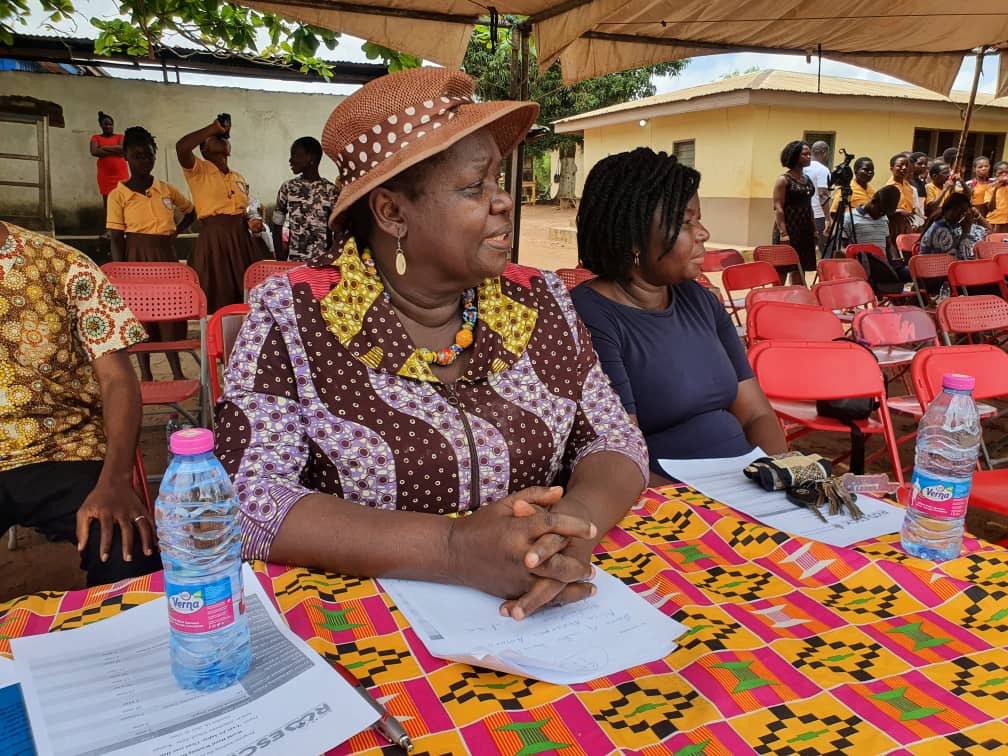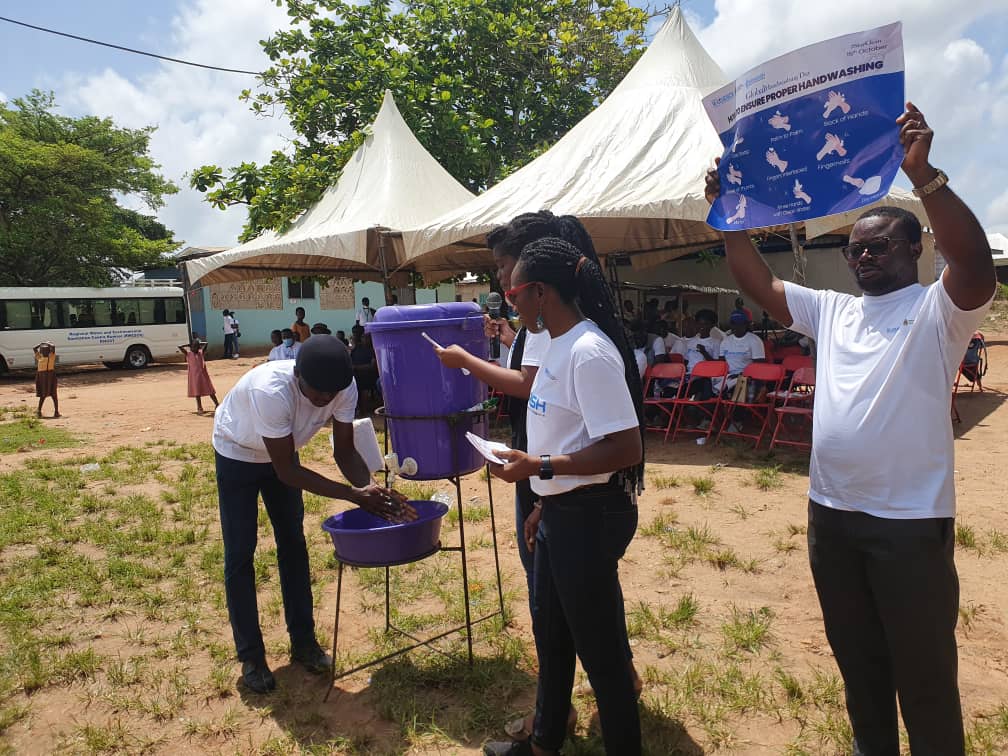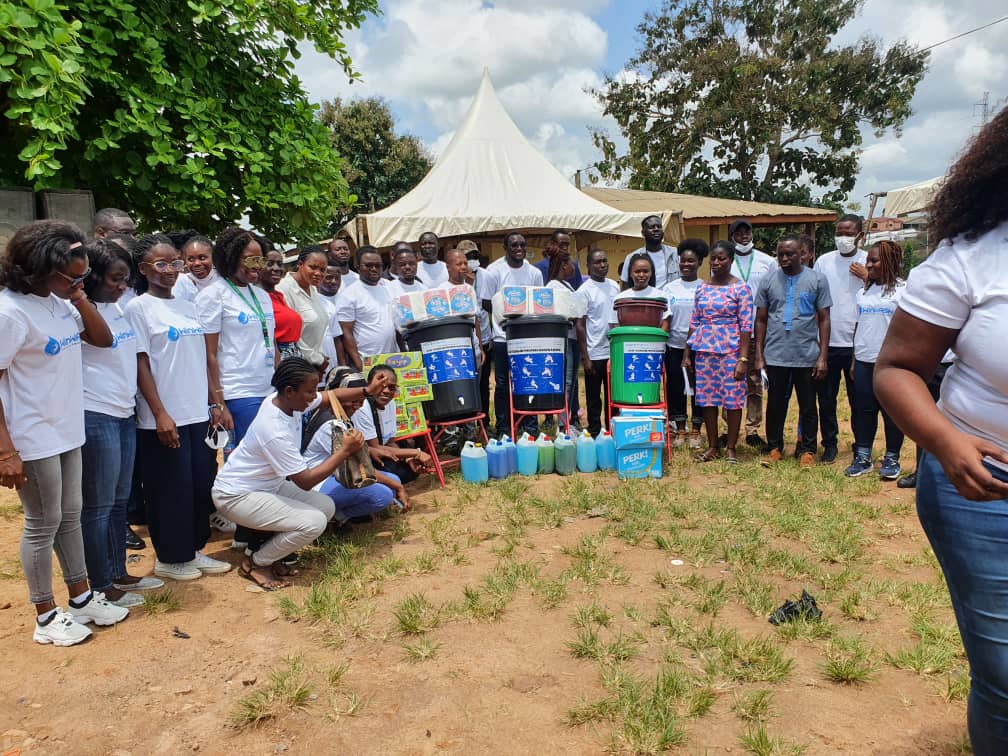The Regional Water and Environmental Sanitation Centre (RWESCK) at the Kwame Nkrumah University of Science and Technology has been educating pupils, especially in rural communities on the importance of handwashing and other good hygiene practices.
Isaiah Addo, the compound overseer at Ampabame M/A JHS at the Ejisu Municipality in the Ashanti Region recounts how he and his friends ignored the hand washing protocols.
‘’We are favoured to have had this education, even though we were taught by our teachers to wash our hands regularly, we mostly forget,” he said.
He admits that even though the school has Veronica buckets, they do not make use of it.
“Most of the time they are only seen washing their hands after eating, myself included. We were regular at washing hands when Coronavirus was at its peak but now that it is no more a threat, I don’t see why we should be worried.
“Even after I play football, I eat without washing my hands,” he said.
The Centre for Disease Control and Prevention states that keeping the hands clean can prevent 1 in 3 diarrhoeal illnesses and 1 in 5 respiratory infections, such as the common cold or flu.
One good thing about Covid-19 is that the washing of hands became a convention in the country.
According to Tropical Medicine and Health, the Covid-19 pandemic has helped in spreading awareness of essential infection control measures: it has highlighted the importance of personal hygiene.
Nonetheless, the washing of hands in many parts of the country has drastically declined.
A study found that handwashing facilities were inadequate as most of the schools lack clean running water, soap, and tissue.
An expert in environmental health and sanitation at KNUST, Prof. Mrs. Esi Awuah, believes hand washing facilities must be made available to encourage the habit of hand washing in schools, homes and public places.
“If we are telling the children to wash their hands, then the facilities must be in place, when children come to school and see the hand washing basin at the entrance, they will wash their hands.
“Clean water must be available, and the schools which do not have any source of water supply must be provided with at least boreholes and soaps as well. The facilities are very important,” she emphasised.

The programme formed part of the activities to commemorate Global Handwashing Day, which is observed every October 15. It was under the theme: “Unite for Safety- Clean your hands.”
The pupils were educated and encouraged on the need to continue hand washing even after the decline of the novel coronavirus.

The headmistress of the school, Alice Atinsipa Amoro, believes it is a good step.
“Even though children have been hearing about hand washing, they do not know how important it is in their lives. They are a bit ignorant,” she disclosed.
“With the demonstrations and activities they have witnessed today, I think it will change their mindset. I think with the knowledge they have acquired today; they will also go back to their homes and educate their parents and siblings,” she added.
The students were elated; they now have a different opinion about hand washing. Adnan Lukman is in JHS-2, and he is convinced about the dangers associated with disregarding the hand washing protocols.
“I have learnt how to properly wash my hands. I now understand why I have to wash my hands after playing with my friends and also before eating.
“Washing our hands is very important because it helps us practice personal hygiene,” he added.
“I have learnt all the steps I need to use in washing my hands and I know every one of us has learnt something as well. Now that we know about the risks, I know we will all wash our hands regularly,” says Richmond Akubil, a JHS-3 student.
Portia Ayensu is also in JHS-2, she is now confident about washing her hands regularly.
“To protect myself from germs and bacteria, I will wash my hands all the time, even when I touch a door,” she said.
Beyond the education, RWESCK has been donating tissue, liquid soap, and hand washing stations to the schools to boost proper hand washing practices.

Ampabame adds to the list of schools such as Odaho and Kwaso M/A primaries, RWESCK has impacted.
There is therefore a need to encourage effective handwashing among children in schools.
This will go a long way in helping prevent diseases such as Cholera, Covid-19, and many more.
Ghana's health service can collaborate with other institutions and NGOs that are into water and sanitation to organise such programmes for these schools.
Latest Stories
-
ECG Missing Containers: Technology alone cannot address dishonesty issues- Col. Aboagye
3 minutes -
Stay and fight the petition for your removal – MP urges Chief Justice
16 minutes -
Sammy Gyamfi rebuts claims of rushed GoldBod Bill process
33 minutes -
Cassona Global Imaging empowers future healthcare professionals with free practical training
37 minutes -
Cedi is 7th strongest currency in Africa in quarter 1 2025
50 minutes -
Ecobank remains Ghana’s top Tier-1 bank with capital of $228m
1 hour -
The MENGXIN 1 Piracy Incident: Assessing impacts, risks, and solutions in the Gulf of Guinea
1 hour -
Access, 6 other Nigerian banks ratings to be upgraded – Fitch Ratings
2 hours -
Clean Jobs Company denies engaging in illegal mining in Tano Anwia forest reserve
2 hours -
Education Minister endorses ‘Science Set’ as key to Ghana’s STEM revolution
2 hours -
CSOs silence on GoldBod due to proper consultation – Steve Manteaw
2 hours -
Three injured, one arrested after violent clashes during Eid-ul-Fitr carnival at Kasoa
2 hours -
ICASA 2025: Steering committee meets in Accra as Ghana readies to host Africa’s largest HIV/AIDS conference
2 hours -
Reimagining Regional Peace and Security: President Mahama’s Strategic Engagement in the Sahel
4 hours -
Kofi Adams sends condolences to family of late Nigerian boxer following death in Ghana
4 hours

